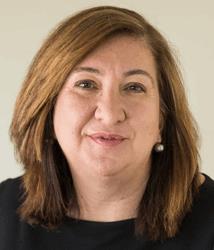Mersana's Goal: Make ADCs Deadlier For Cancer, Safer For Patients

By Ed Miseta, Chief Editor, Clinical Leader

One of the tag lines you will see on the Mersana Therapeutics website states the company is advancing a pipeline of precisely targeted, tailored therapies to radically improve patients’ lives. It is doing so by rewriting the rules for immunoconjugate therapies.
The company currently has two molecules in the discovery, one in Phase 1 and the other in late pre-clinical development which is scheduled to begin Phase 1 trials in the second half of 2017. The company has other programs being jointly developed with partners Takeda and Merck KGaA. The goal of the company in developing these immunoconjugate therapies is to improve the lives of patients by increasing their survival rate and quality of life.
 Mersana’s first pipeline product, XMT-1522, defines a new class of targeted HER2 (human epidermal growth factor receptor 2, a gene that can play a role in the development of breast cancer) therapies. It is based on the company’s Dolaflexin platform and is armed with about 15 auristatin (a potent anti-cancer agent) molecules per antibody. This makes it different from other ADCs (antibody drug conjugates) on the market which are limited to only two to three payload molecules per antibody. XMT-1522 is highly potent in tumor models expressing relatively low amounts of the HER2 protein. XMT-1522 has the potential to extend HER2-targeted therapy beyond the current “HER2-positive” population into patients with lower levels of HER2 expression. Human clinical trials are currently underway.
Mersana’s first pipeline product, XMT-1522, defines a new class of targeted HER2 (human epidermal growth factor receptor 2, a gene that can play a role in the development of breast cancer) therapies. It is based on the company’s Dolaflexin platform and is armed with about 15 auristatin (a potent anti-cancer agent) molecules per antibody. This makes it different from other ADCs (antibody drug conjugates) on the market which are limited to only two to three payload molecules per antibody. XMT-1522 is highly potent in tumor models expressing relatively low amounts of the HER2 protein. XMT-1522 has the potential to extend HER2-targeted therapy beyond the current “HER2-positive” population into patients with lower levels of HER2 expression. Human clinical trials are currently underway.
The company’s CEO, Anna Protopapas, is no stranger to the world of ADCs. She worked for Takeda for almost 20 years prior to joining Mersana, and had the opportunity to personally meet patients who were treated with the Seattle Genetics ADC ADCETRIS. She notes some of the patients she met experienced “incredible recoveries.”
Patient Safety Is Primary Concern
Since the first ADCs were developed, the therapeutic payload has been a limiting factor. While the potency is necessary to destroy cancer cells, care has to be taken to ensure it also does not have a significant detrimental impact on healthy tissues. “Our Fleximer technology allows us to deliver a higher payload to the cancer cells,” says Protopapas. “But the chemistry we use allows the payload to become trapped in the cancer sell, where it gets metabolized into a less toxic form. It kills cells but is more tolerable to patients.
Despite all the new medicines, technologies, and our understanding of tumors, she believes being able to deliver chemotherapy or other anti-cancer drugs in a safe way directly to the tumor site will always remain an important factor in treatment options, regardless of whether they are offered in combination with new therapies or as part of an ongoing regimen.
“In my experience, good clinical data has a significant impact on trial recruitment rates,” she says. “On average, recruitment in clinical trials has been a challenge, but we are able to recruit faster in more meaningful studies than we are in studies that have a more marginal benefit. As we continue to move forward, I think it’s important for the industry to make tough decisions early, so that only the most promising programs move forward. As an industry, we have sometimes been too slow to terminate the programs that seem to deliver only marginal benefits. Good data that looks promising will get patients excited. That will be the most fundamental way to improve recruitment.”
Growth Also Creates Challenges
Mersana recently obtained FDA clearance of an IND (investigational new drug) application for an ADC. While Protopapas did not cite any specific challenges in perfecting the technology or getting the clearance, she did note the company experienced growing pains along the way. Mersana is a small company that employed 38 individuals at the end of 2015. In 2016 it added an additional 25 people. “We were in the process of writing the IND while we were bringing all of these new people onboard,” she says. “That was not an easy thing to do. At times it seemed like we were flying a plane while building it at the same time. Still, I don’t think this is all that unusual for small, fast-growing biotech firms.”
Mersana also worked closely with the FDA and had many interactions early on in the R&D process. Protopapas claims these interactions were constructive, helpful, and very collaborative. This helped the IND submission go smoothly and with minimal interaction with the FDA. Her background has certainly been a big plus for Mersana, especially when it came to working with regulators and pharma partners.
When talking to Protopapas, you come away thinking she is an expert in the area of ADCs. But the recipient of an MBA from the Stanford University Graduate School of Business would quickly tell you she does not consider that to be the case. “I have never thought of myself as an ADC expert,” she states. “I think of myself as having much more of a general business career that happened to be in the biotech industry. For the better part of my career I have been involved with business development, which is really about putting partnerships in place and forming new ventures. I consider myself to be more of a business person than an expert in any technical area.”
When it comes to understanding the technical aspects of ADCs, Protopapas likes to draw on her engineering background. She has a BS in Chemical Engineering from Princeton, a master’s degree in Chemical Engineering from MIT. “Maybe that’s what attracted me to the field,” she says. “In many ways, it is a bit of an engineering challenge to design these molecules to do what we want them to.”
Good Talent Helps The Effort
Mersana is located in Cambridge, Massachusetts, and Protopapas says this took a lot of the challenge out of recruiting the employees it needed to hire. “I see both positives and negatives in being located in a bio hub like Cambridge,” she states. “On the one hand, I sometimes worry about the competition. You can literally change jobs in this area and not have to change parking spots. But the flip side of that is there is an incredible amount of talent and expertise relevant to drug discovery and development. I’m excited about the folks we have been able to bring onboard and the expertise they have brought to our efforts.”
In closing, Protopapas believes this is an exciting time to be involved in the oncology field. She notes the amount of innovation and patient options that have surfaced in the last 20 years has been “incredible.” But despite all the new mechanisms for treatment, as well as our increased understanding of biology, she believes being able to deliver chemotherapy in a safe and targeted way is always going to remain an important part of the treatment paradigm.
“This is why I’m so excited about the platform we have here at Mersana,” adds Protopapas. “We believe the opportunities we will have to leverage our technology will truly help patients with cancer.”
